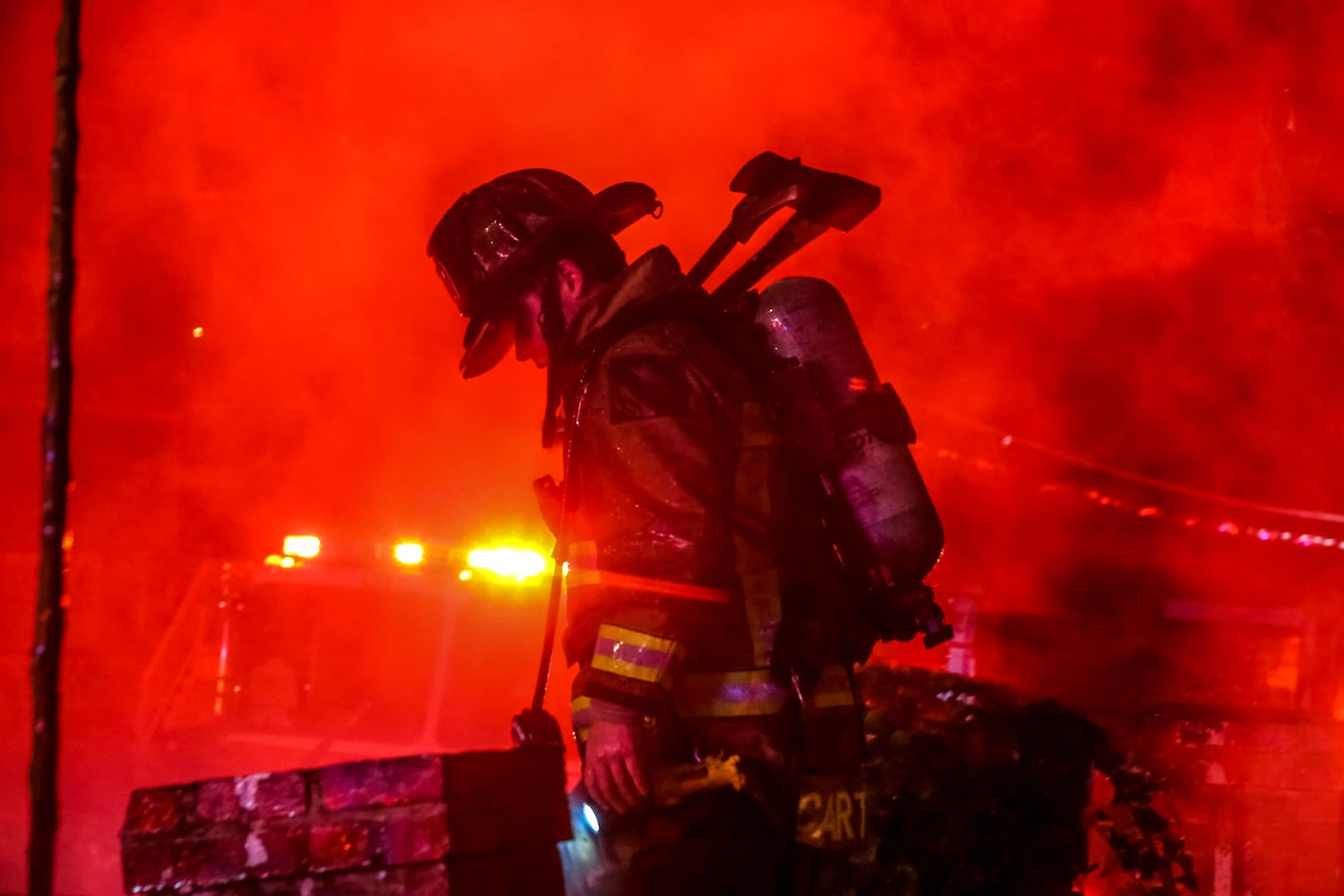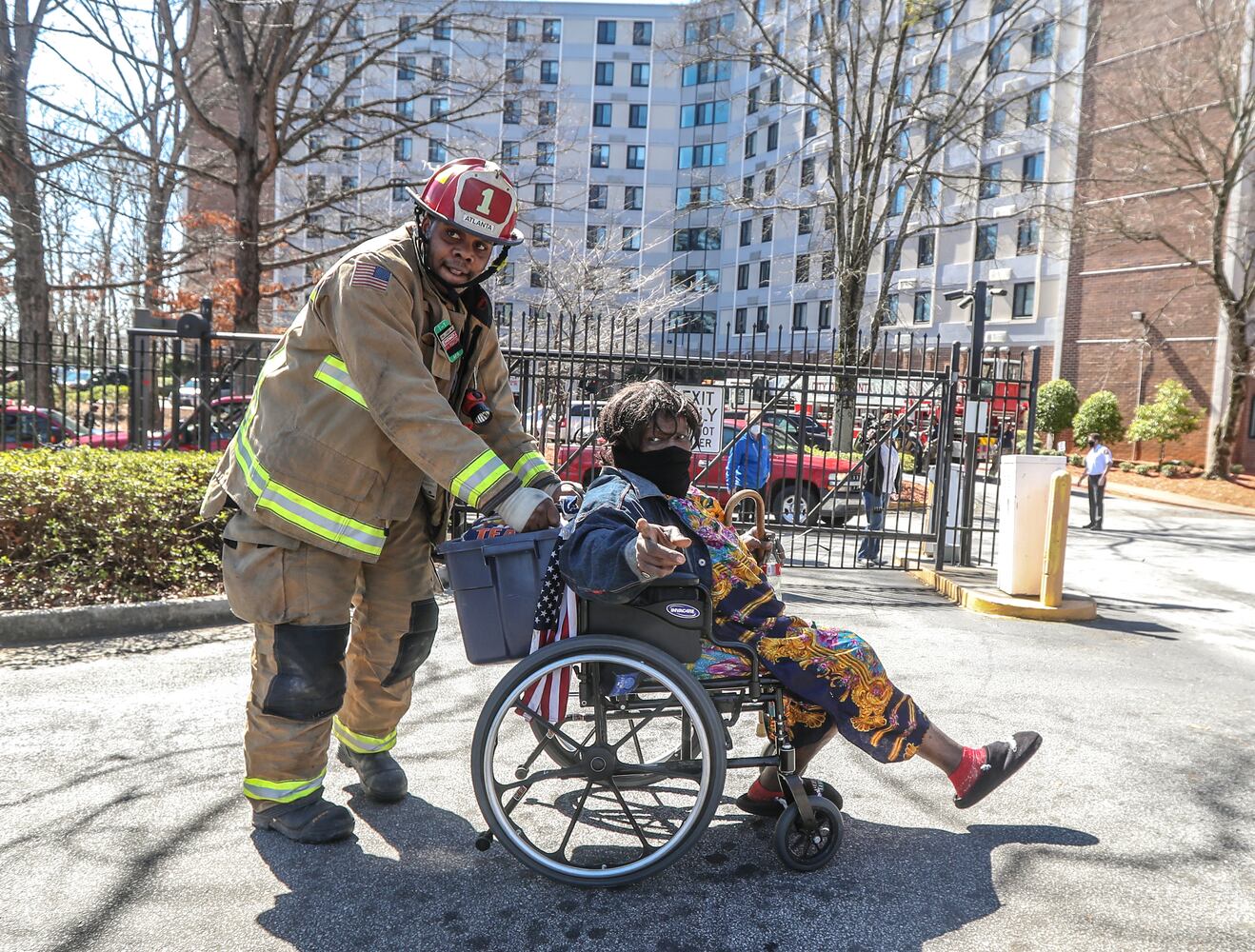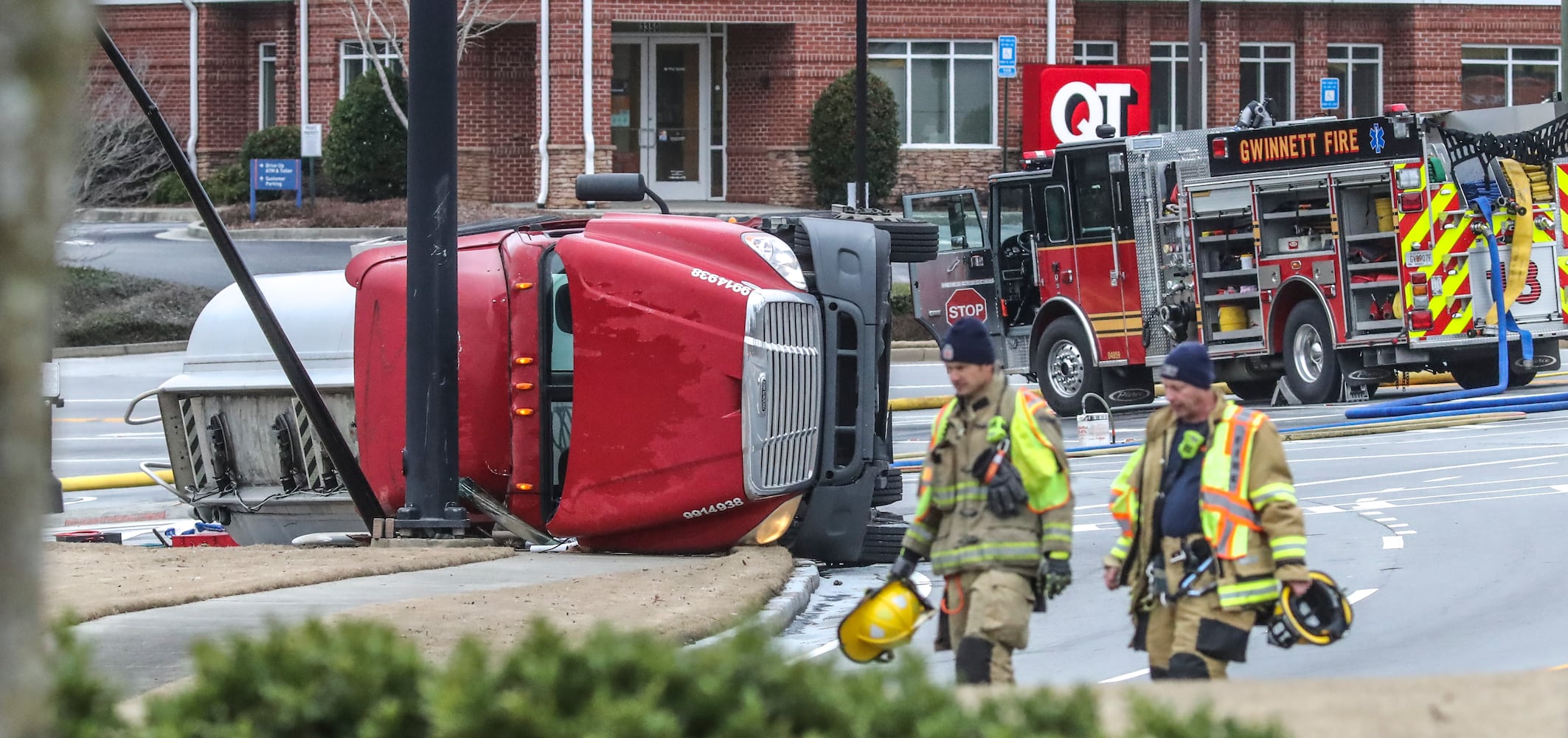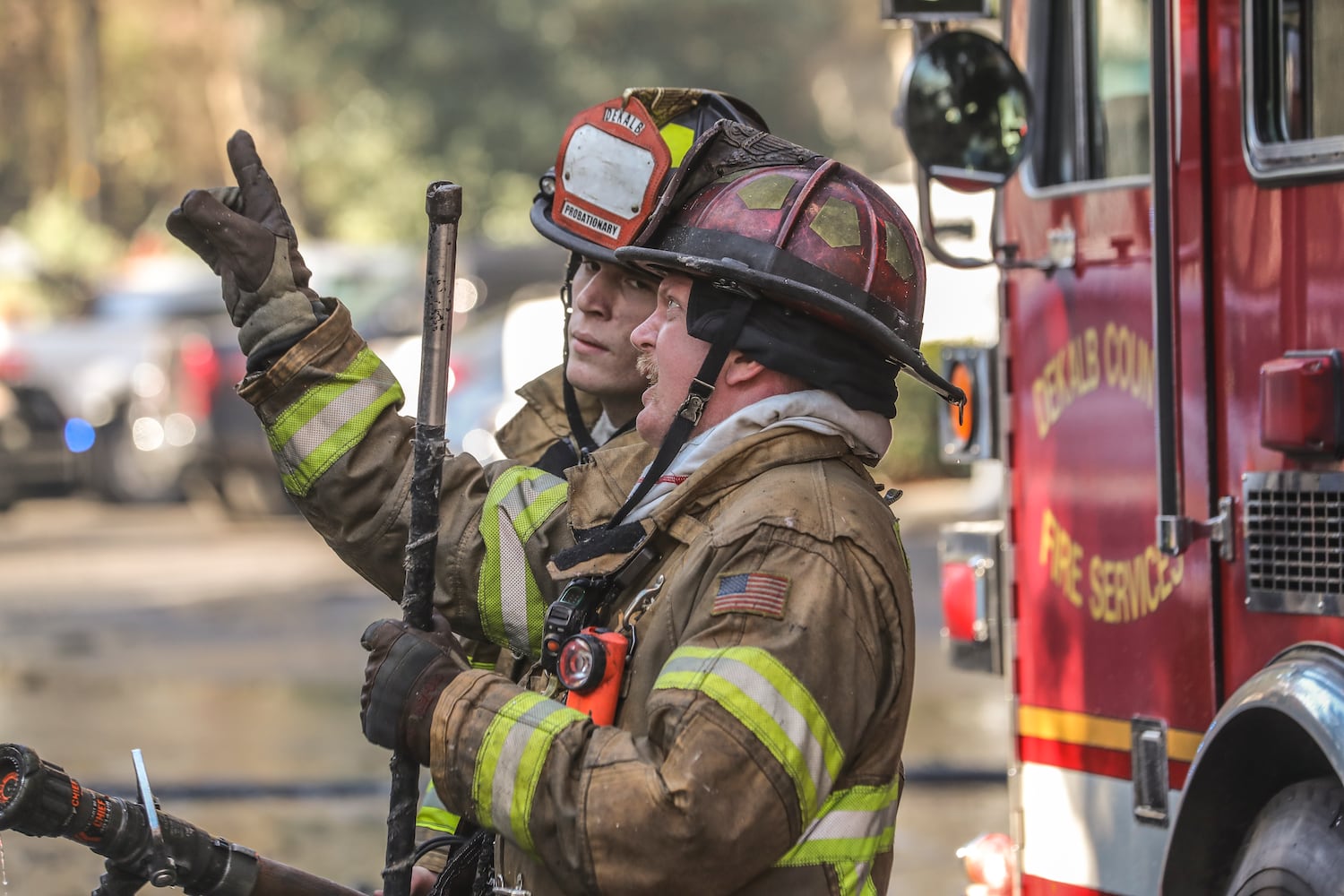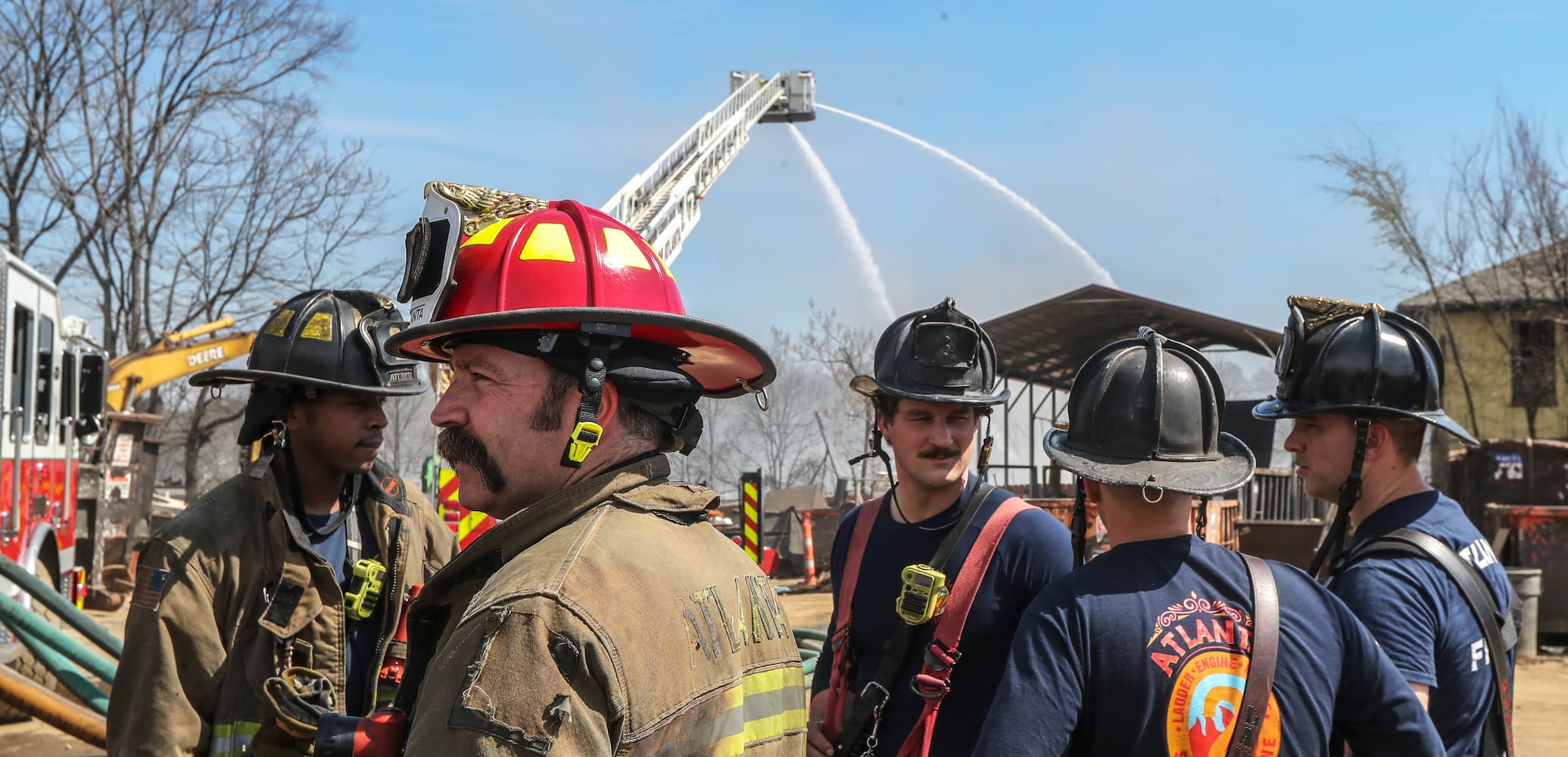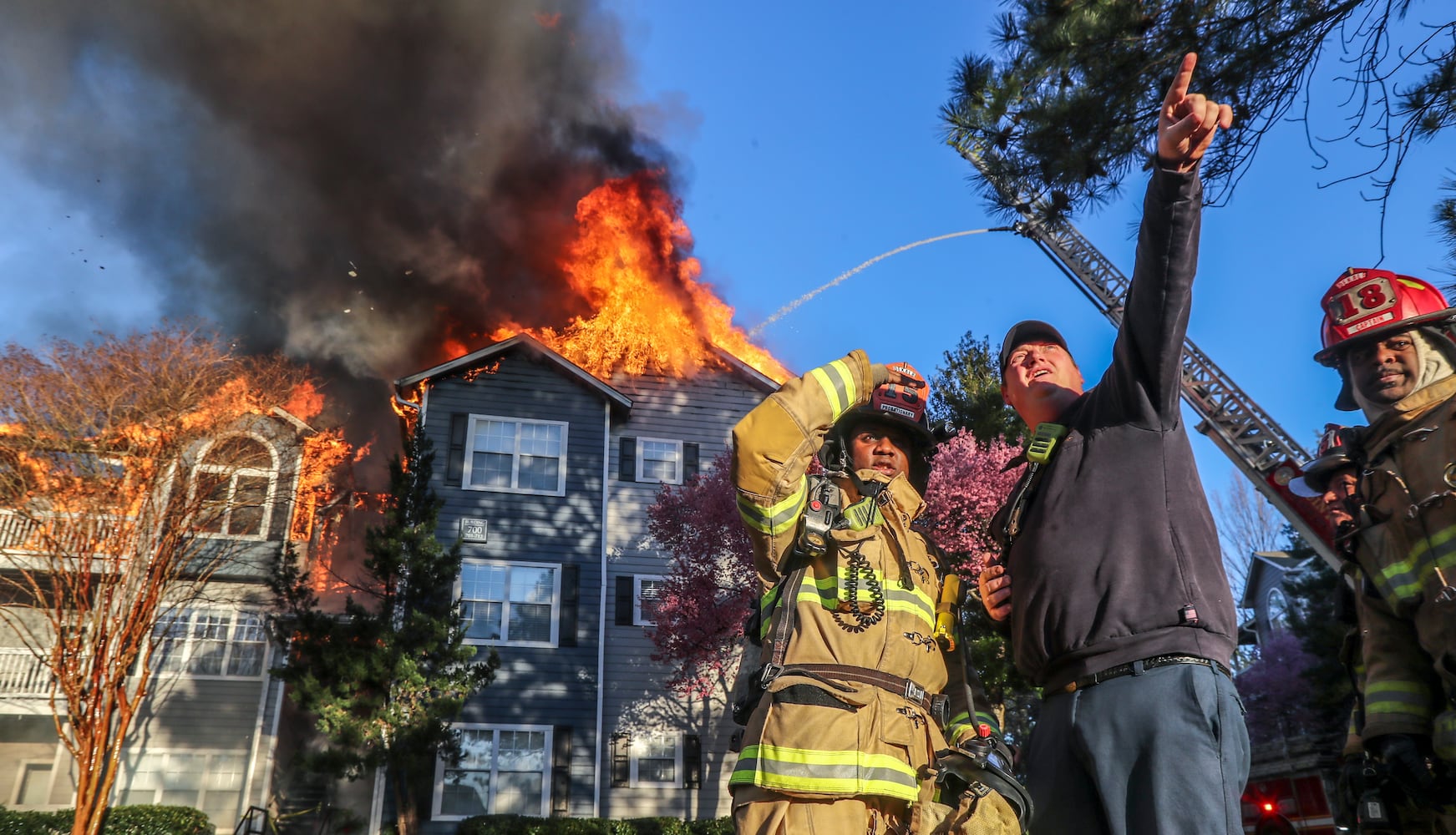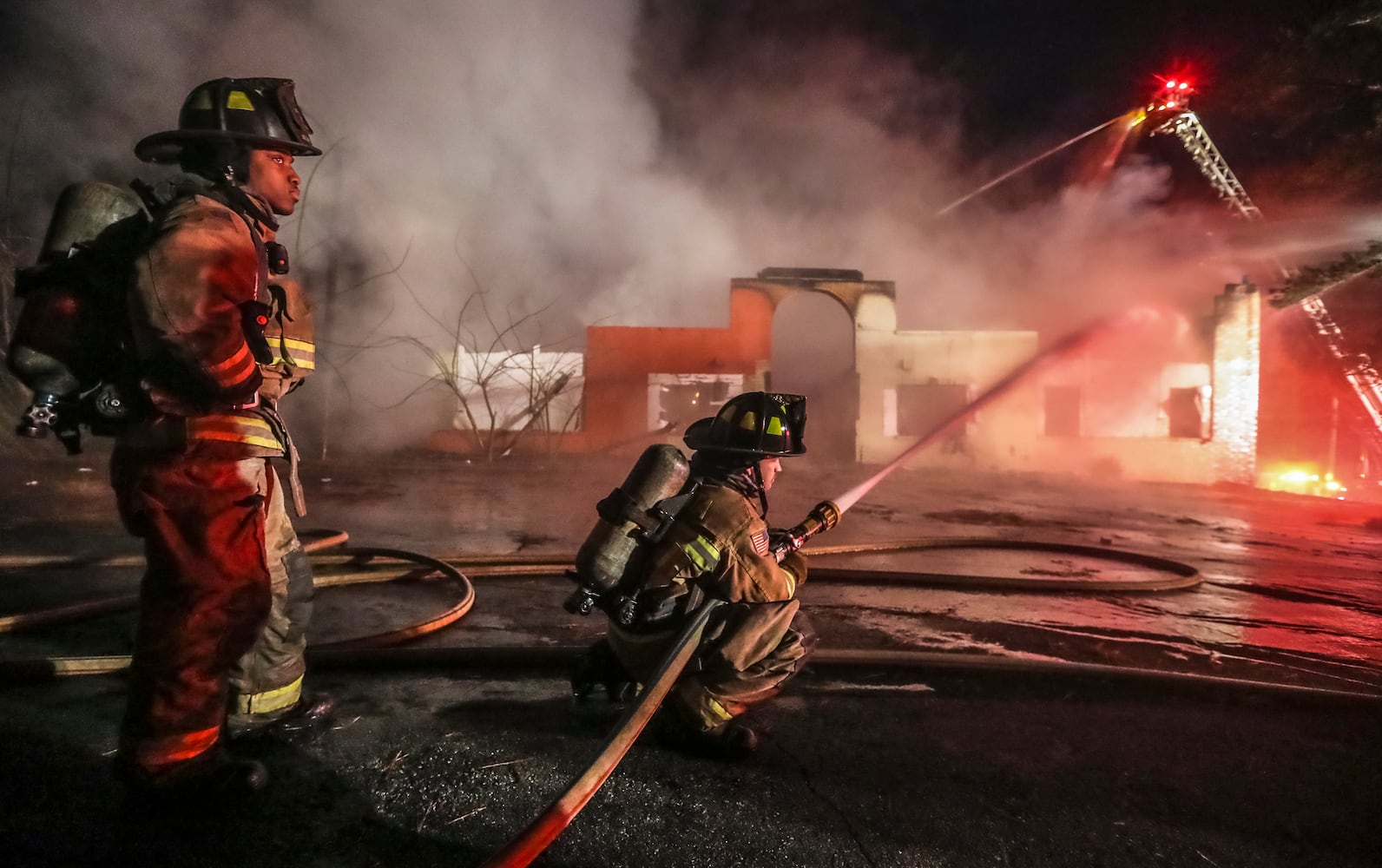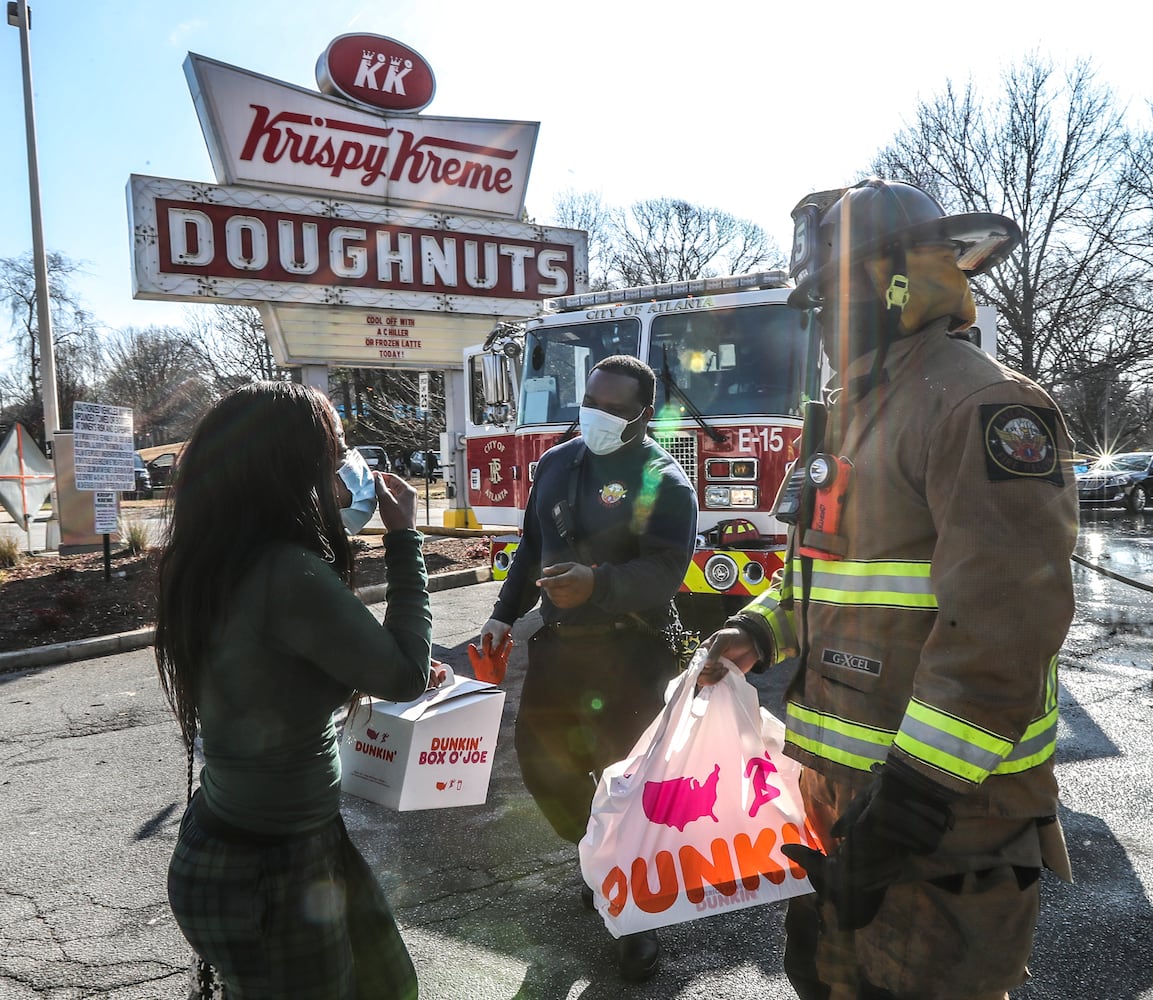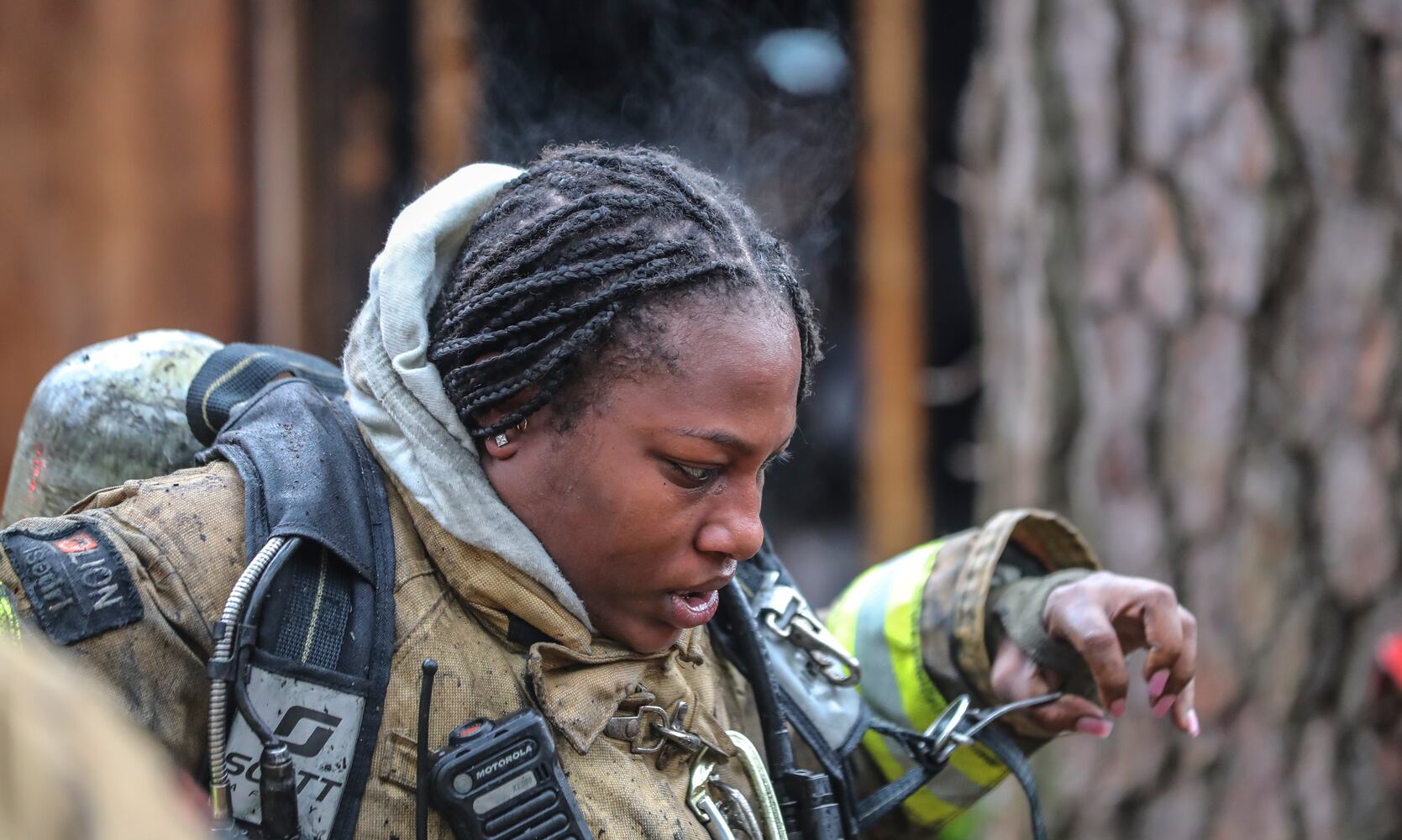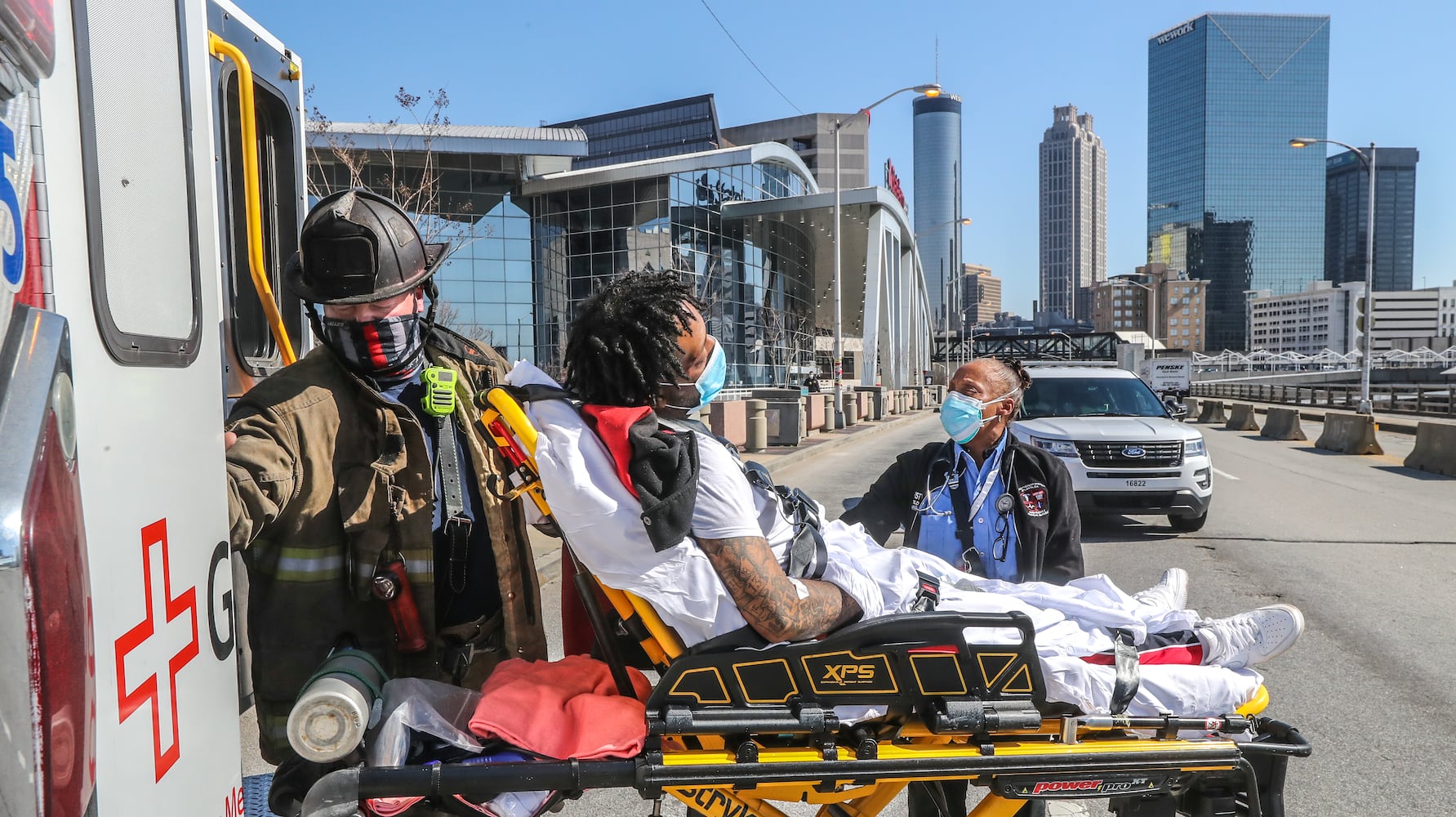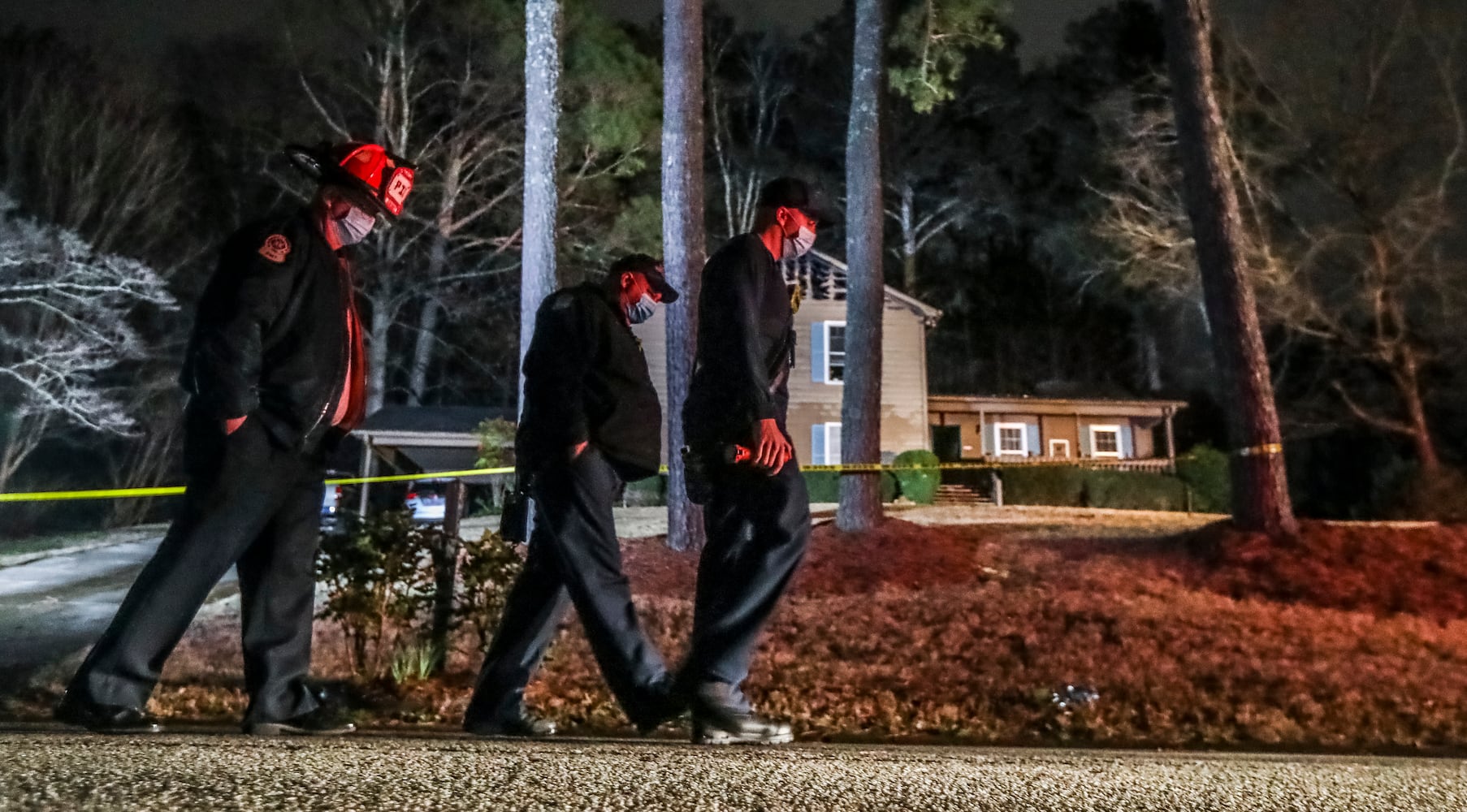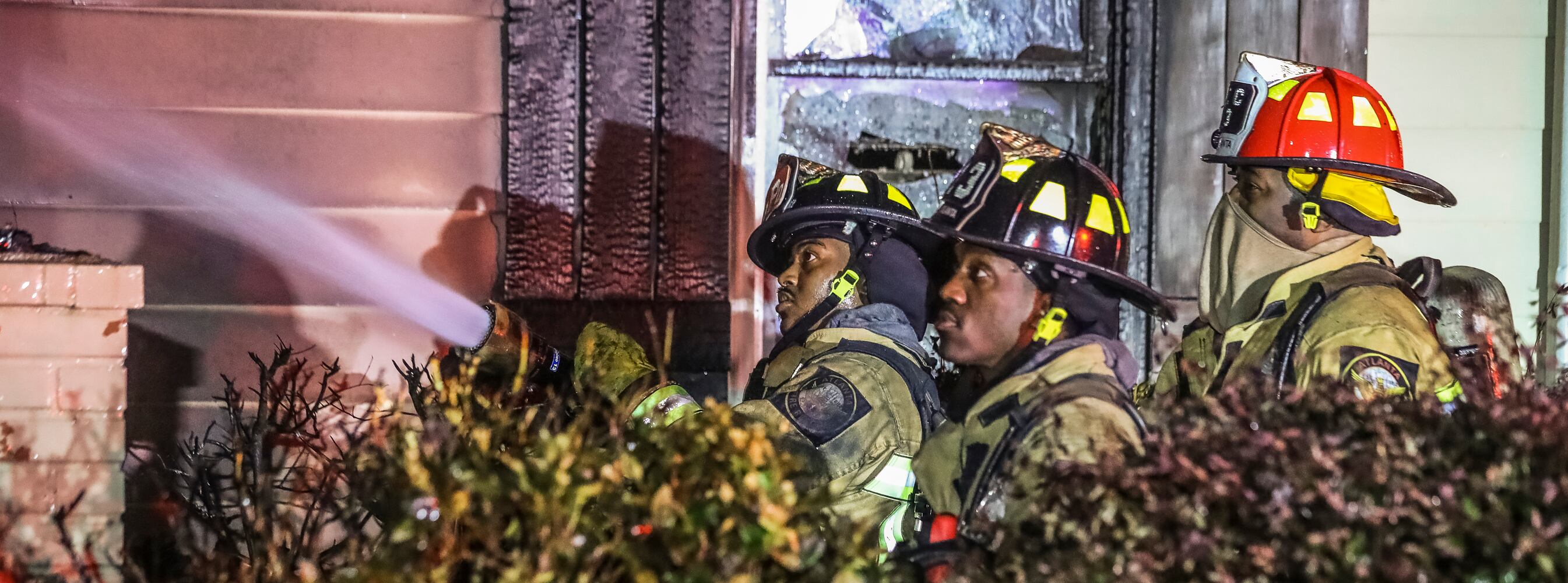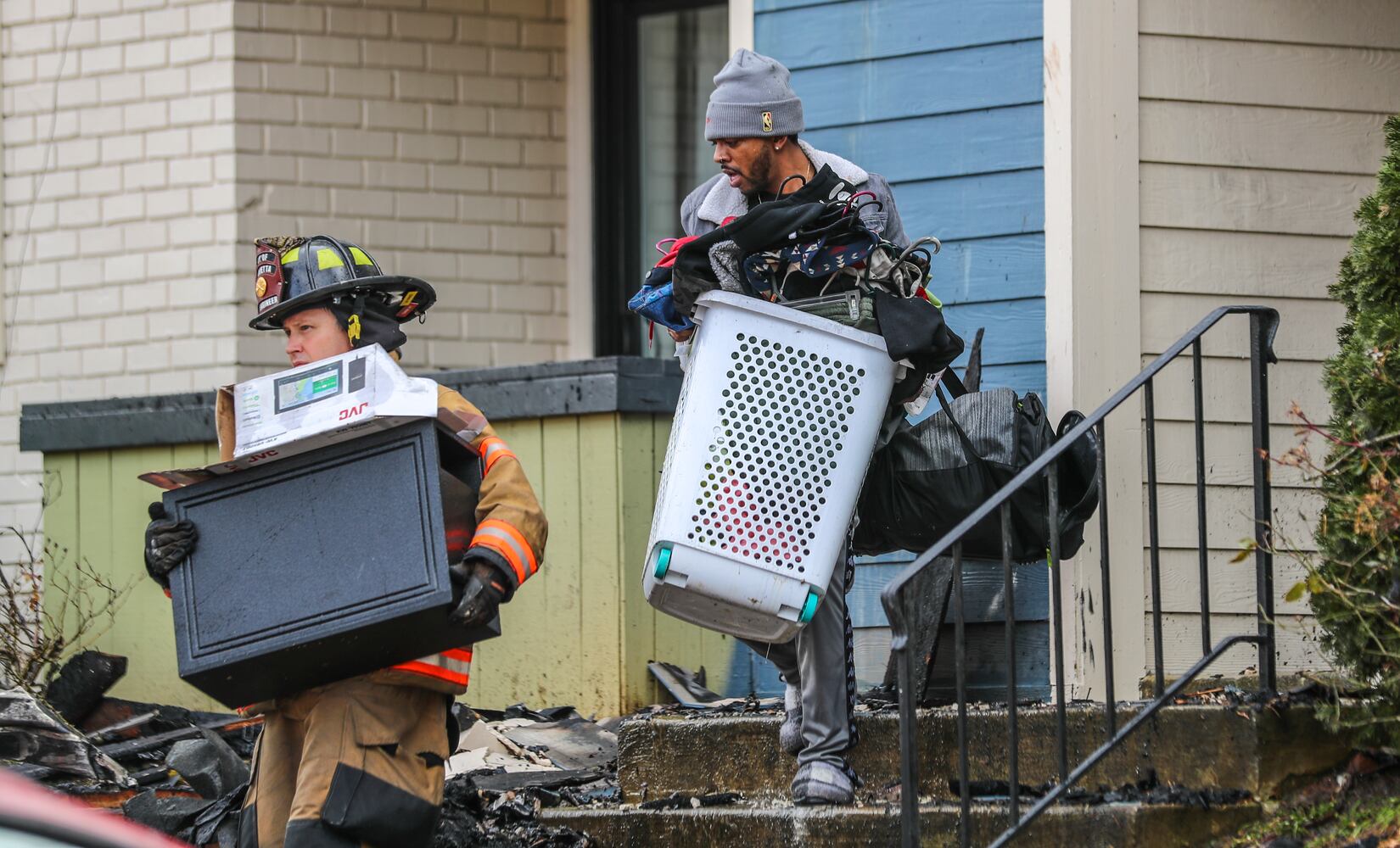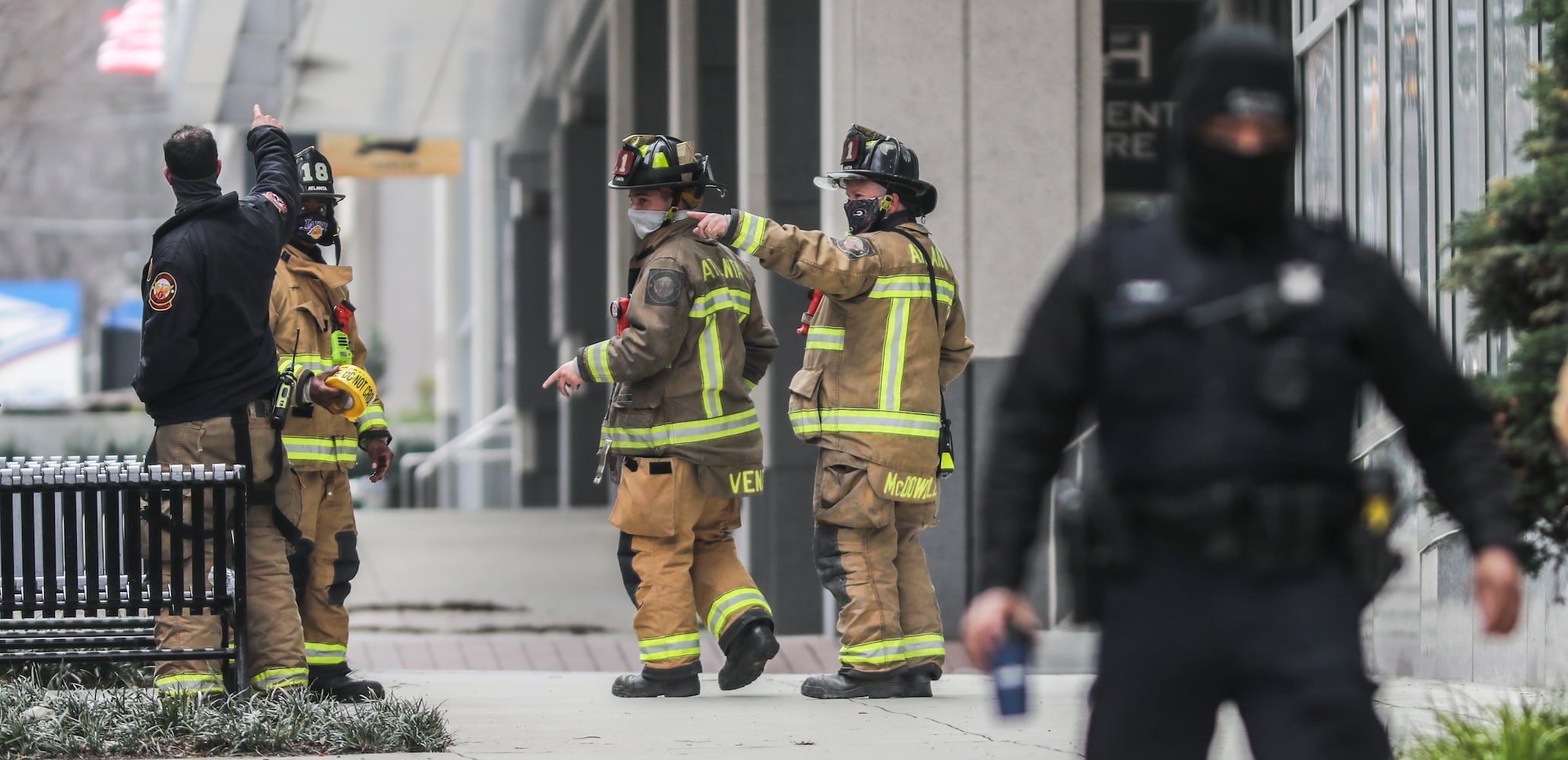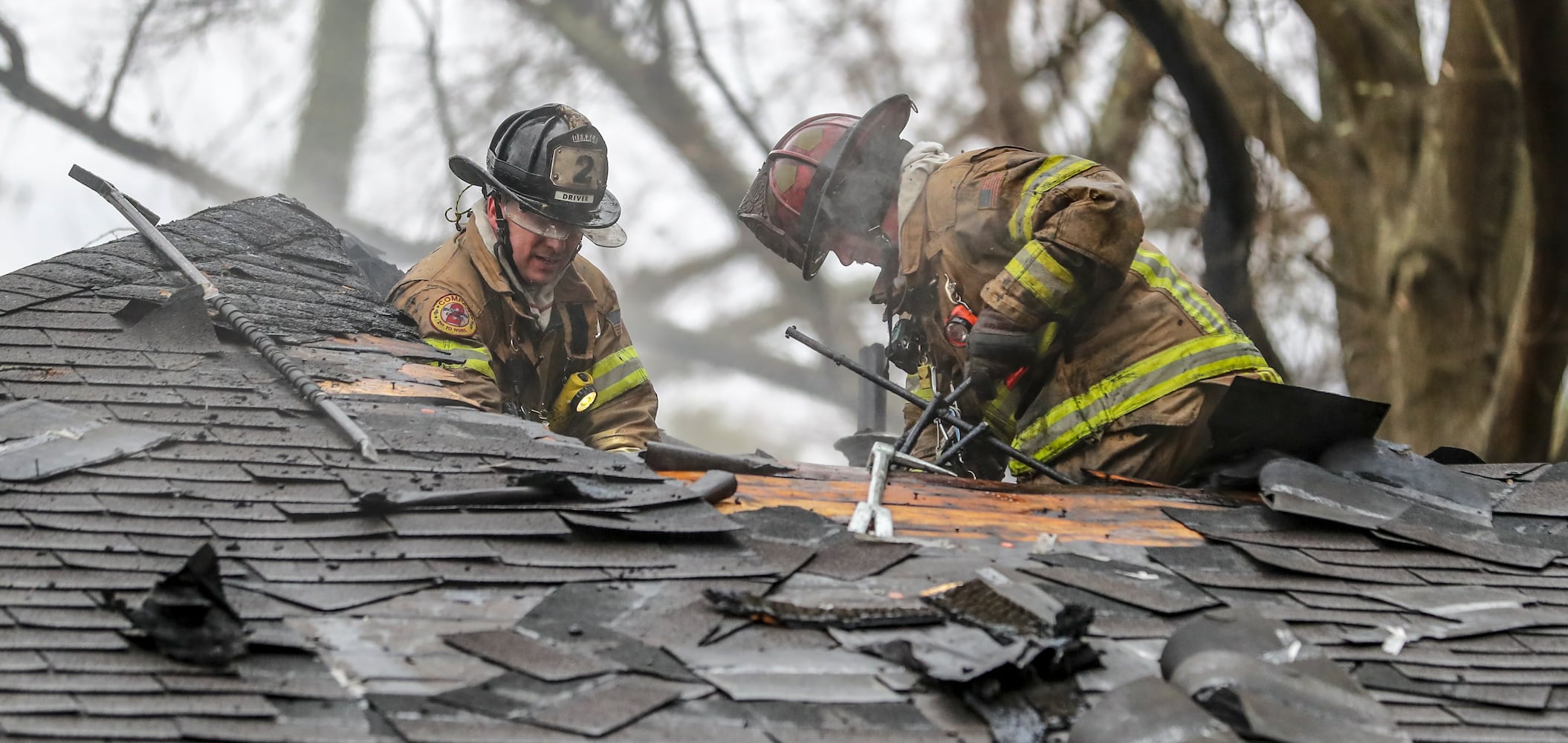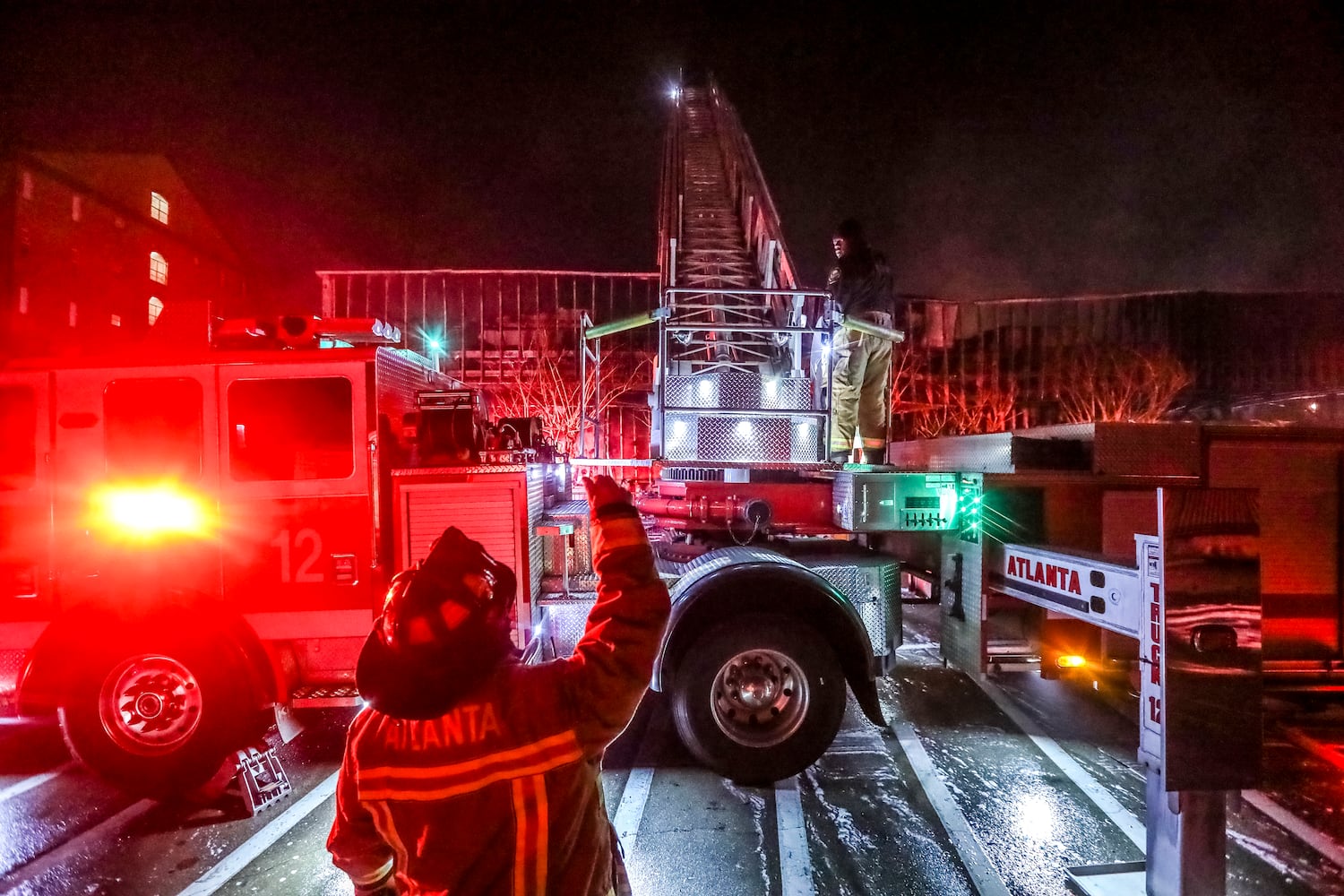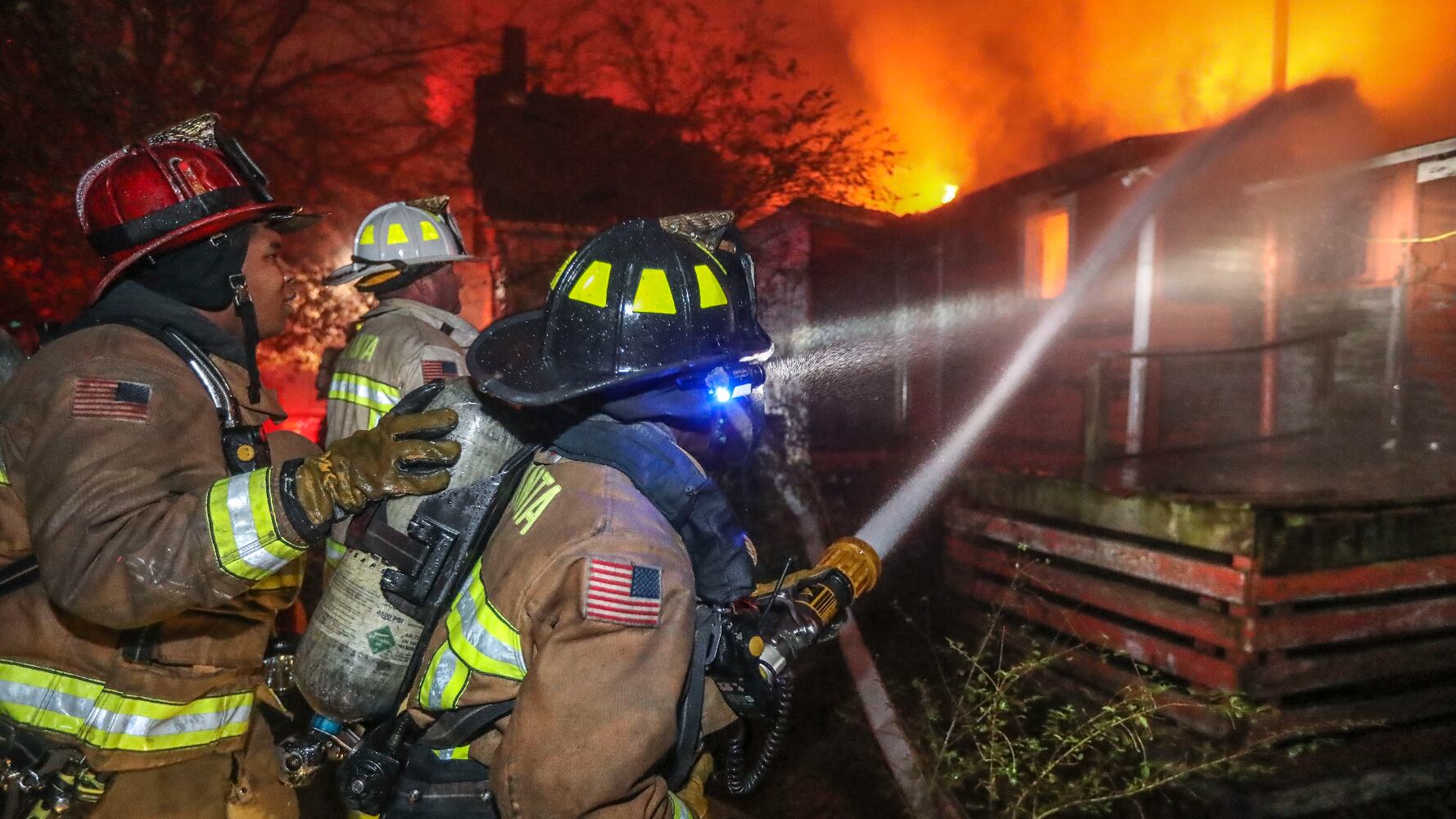The call comes in abruptly, urgently. When the voice of a dispatcher comes through over the speaker clipped to his left hip, Gwinnett County fire Capt. Wally Brown begins the countdown.
One minute, thirty seconds.
A glance at a laptop tells him where he and his squad will be heading. He sorts through the particulars of the incident while pulling on his gear. Boots first. Then pants, suspenders and coat. There’s a fire somewhere.
One minute.
Members of his team burst into the bay and bound toward the squad vehicle. They shimmy into their response gear and leap into the waiting truck, already outfitted with hoses, oxygen tanks, medical equipment, the jaws of life.
Thirty seconds.
Nobody lumbers. Nobody drags. When he climbs into the truck, the driver knows where he’s going, how to get this crew there safely, how much water he’ll need to supply the crew with once they arrive. Brown again checks his laptop, preparing to orchestrate their response.
And then, in the same amount of time it would take the average reader to arrive at this sentence, the crew is pulling away from the firehouse and hurtling down the road toward uncertainty.
“For any call there's a lot of things you need to know how to do. It actually could take years — maybe 10 or 12 years — to become an effective firefighter."
Firefighters across metro Atlanta know these motions by rote. Their confident hands swing an ax, raise a ladder or tie a knot with a fluidity borne out of ample practice. Meticulously checking thousands of pieces of equipment on the fire engines daily becomes second nature in a way that borders on mundane.
But what’s completely unpredictable, they say, is what sort of incidents they will ultimately respond to during their 24-hour shifts. Just since the beginning of the year, crews across the metro area have responded to myriad situations that did not involve putting out a blaze.
· In Atlanta, firefighters rushed to evacuate citizens when a teetering crane posed a risk of falling on apartments and businesses below.
· In Gwinnett County, a specialized hazmat unit in the fire department hurried to prevent gasoline from contaminating nearby bodies of water after a tanker truck overturned in a major intersection.
· First responders in Hall County were called to the scene of a nitrogen leak at a poultry plant that killed six employees.
· And a fire crew in DeKalb County climbed through a crumbling home in order to rescue a 1-year-old girl after a fallen tree trapped her inside her bedroom.
Leaders in the profession say the varied, wide-ranging nature of the calls is why each firefighter must undergo a diversified training regimen before they can even consider responding to an active fire.
“We consider ourselves an all-hazard response team,” DeKalb fire Chief Darnell Fullum said. “If someone calls 911 and asks for assistance and it isn’t a law enforcement matter, more than likely you’re going to get a firefighter.”
Training, and more training
Fullum, who has been in the fire service since 1987, said his teams are trained to respond to all types of situations, many of which don’t involve tamping out a flame — from car wrecks on the interstate to hikers stranded in the wilderness. A variety of specialized teams are also available for hazmat situations, diving and swift water rescues, vehicle extrication and rescues from high areas or places with rough terrain.
The rigorous training begins with an eight-week basic firefighting course through the Georgia Fire Standards and Training Council. Then, there’s a CPR certification course through the American Heart Association. Then, two other training courses through FEMA. And after approximately one year of classroom and medical training, a firefighter is prepared to handle basic medical calls and begin fire training.
That’ll include physical conditioning, practice breaking down doors and crawling through small spaces, drills in monitoring water pressure, and coaching on how to recognize what equipment is necessary in any given situation and how to evaluate how to safely enter crumbling structures. It can also involve learning how to raise a ladder in order to make a rescue at a great height or simple duties such as knot-tying.
And that’s just getting started.
“For any call there’s a lot of things you need to know how to do,” Brown said of the job. “It actually could take years — maybe 10 or 12 years — to become an effective firefighter.”
Those drawn to the profession often refer to it as a calling. DeKalb Batallion Chief Maurice Gates, who became a firefighter in 1994, said he first dreamed of donning the uniform when he was a small boy.
“I still have a Christmas picture of when I was a child, with a fire hat on and a fire truck,” he said.
He probably never dreamed of the equipment he uses today: heat-sensing cameras, oxygen masks, flame-proof gloves. Those items can quickly become a firefighter’s eyes, lungs and hands in a smoke-filled home.
Expect the unexpected
Firefighters in Georgia are also trained as paramedics, and the majority of their dispatches are actually medical calls. Brown said about 80% of Gwinnett’s dispatches relate to medical emergencies, while Fullum placed his prediction at more than 70% in DeKalb.
The diverse training was evident in January, when the DeKalb fire department had to navigate through massive chunks of drywall and insulation to rescue the 1-year-old girl after a massive tree fell on her home during a storm, trapping the child inside her bedroom. The damaged wall was directly above the girl’s crib and the tree’s limbs blocked the door.
“They used a hacksaw — I don’t know, some type of electronic tool — to cut my door open and went in and got my baby,” Ashlee Johnson said following her daughter’s rescue.
“I’m thankful to the DeKalb County fire department for getting her and giving me my baby.”
“They're seeing people when they are facing the worst. A fire is probably the worst thing a person will experience beyond death, because you are losing everything."
Then there are the fires, the bread and butter of the profession, which were plentiful in North Georgia during the winter months.
In December, crews in Dunwoody battled flames and smoke that was visible from I-285 after a gas line led to a massive blaze at an apartment complex. Two residents were burned, and one woman went into labor during the commotion.
In February, Atlanta fire crews raced to tamp out a blaze at the famed Krispy Kreme that had stood on Ponce de Leon Avenue for nearly 60 years, and in Cobb County, a deadly 16-vehicle crash on I-75 caused a fire that scorched the pavement of the interstate, requiring more than seven hours of cleanup.
In March, DeKalb firefighters learned that a 68-year-old woman had died at the hospital after they had managed to pull her from the second story of a burning home.
The latest happened Wednesday, when crews battled a blaze at a Sandy Springs apartment complex that left 17 people displaced. Since the start of the year, hundreds of metro residents, in homes and apartments, have been left without a place to live because of fires.
For firefighters, it’s all part of a long day’s work.
“They’re seeing people when they are facing the worst,” Fullum said of his crews. “A fire is probably the worst thing a person will experience beyond death, because you are losing everything. You are losing all of your memories, your belongings, your everything.”
Mentally and physically demanding
It’s easy to take the job home with you, said DeKalb fire Capt. Adrianne Ziyad. She often finds herself reliving her crew’s calls from that day with her husband, a retired firefighter.
But some memories are more painful than others. Like the cold, December night shortly after Ziyad joined the department, when three children died in a house fire.
“I learned I’m an emotional person, so sometimes things stay with me longer,” she said. “I find myself thinking about my patient and wondering, ‘Did their condition change? Are they doing better?’”
The demands of the job test firefighters mentally and physically. Those who answer the call put their lives on the line every day, for every call.
But Brown — and countless others in his field — say that’s exactly why he won’t ever be able to give it up.
“I was supposed to leave years ago,” he said. “I was supposed to retire last October. I had a cruise booked with my wife and everything. The high school had asked me to come help coach the wrestling team.
“But every now and again the guys would get back from a great call and I would look at them and think, ‘I can’t leave this.’”
AJC.COM
Go to ajc.com to hear AJC photojournalist John Spink talk about the life of firefighters.
About the Author
Keep Reading
The Latest
Featured
